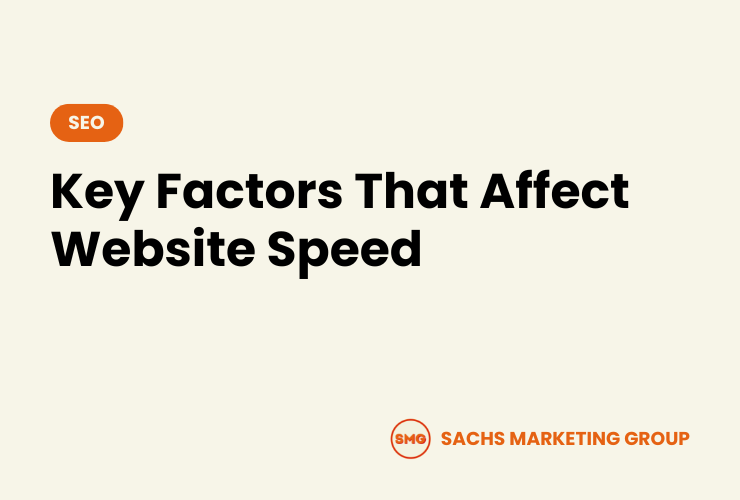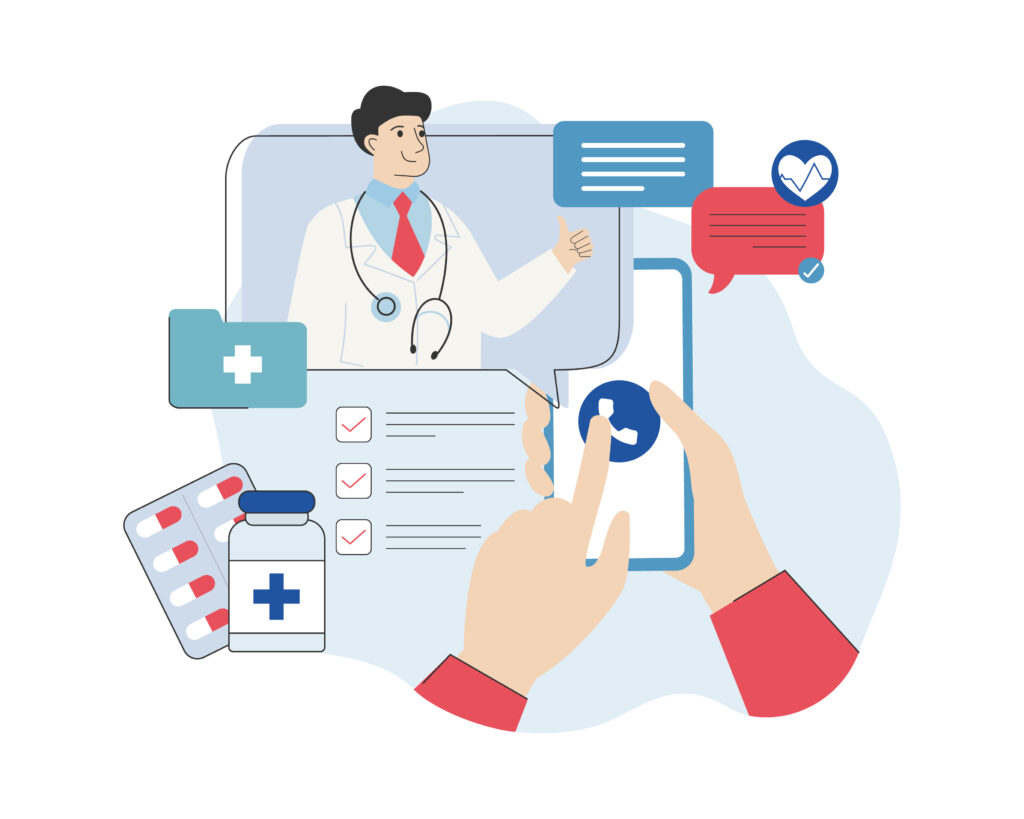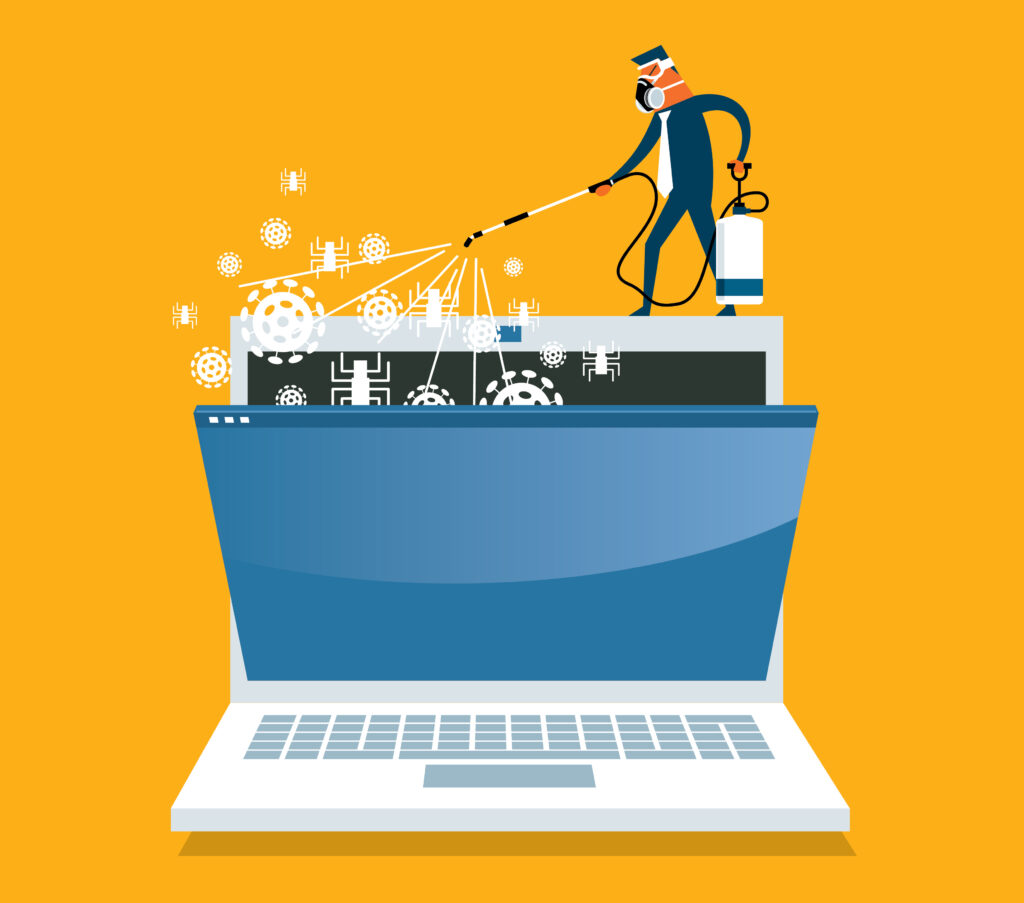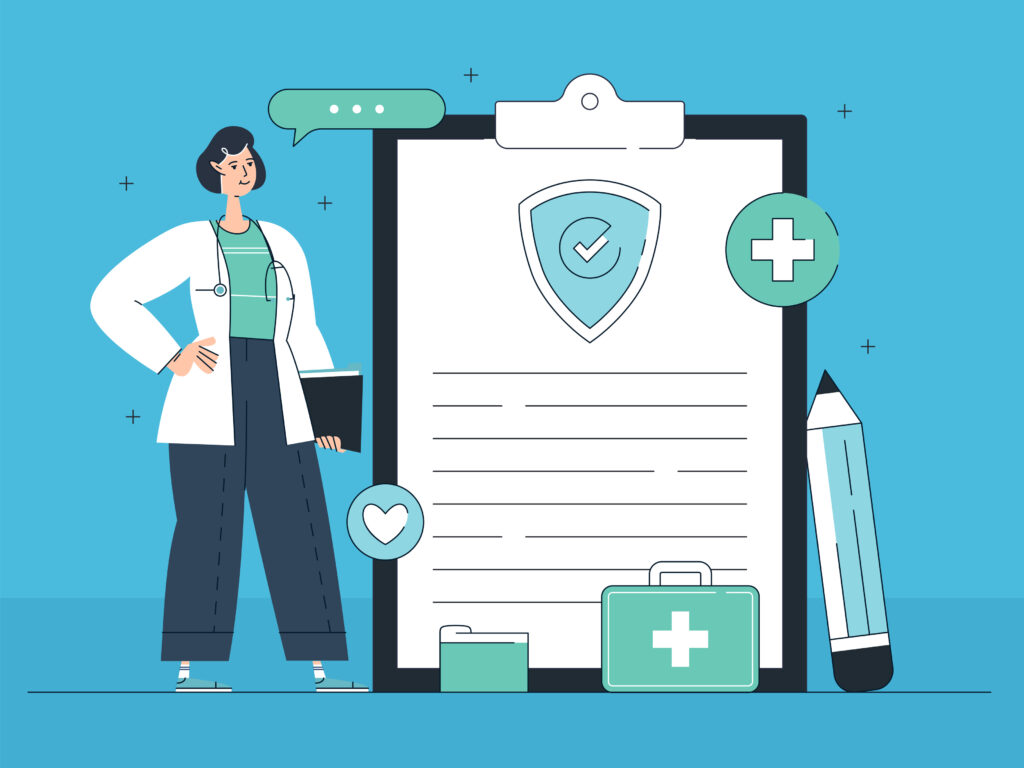There are several factors that affect website speed. Website speed is affected by the quality of your hosting service, the size of your images, and how many add-ons or extra features you have. Making sure images aren’t too large, keeping extras to a minimum, using simple caching methods, avoiding unnecessary redirects, and using a content delivery network can all help make your website faster.
Research shows nearly half of web users expect a website to load within two seconds or less, and they tend to leave a site if it takes more than three seconds to load. This may not sound like a big deal, but 78% of online shoppers who experience issues with website performance say they won’t go to the site to buy again, and 44% would tell their friends about that poor experience.
This is why website speed is a priority for search engine optimization (SEO) professionals.
When you consider that research also shows a one second delay in page load time can contribute to a 7% reduction in conversion rates – you’re not only losing money, but potential customers. If your business earns $10,000 a day, a single second delay in your load time could cost you $250,000 a year.
Overview
Connection Speed
The type of internet connection you have will directly affect the speed at which any website loads. If you’re one of the people who are still stuck on dial-up, no matter how well optimized a website is, it’s just going to take longer. DSL offers a faster connection than dialup, but it’s not quite as fast as a cable connection. And as fast a cable connection can be, it still can’t beat a fiber optic connection.
Server/Hosting
Your web hosting company and the server it chooses to place your website on can have a major impact on the speed at which your website loads for visitors. If there aren’t enough resources on the server, it will slow things down for everyone. While shared hosting is the most economical choice for many small websites, it is not the best solution for all. Larger websites may need to look into a virtual private server, or VPS, which provides the cost efficiency of shared hosting, but the ability to control server resources like a dedicated hosting plan. The largest websites, like Facebook and Twitter, need to use dedicated hosting, where they are the only website hosted on the server, and have complete control of the resources. Sites of that size need more than one server to accommodate the traffic volume they receive.
When you choose your web hosting company, look for one that has an uptime rating of at least 99.5%. Many advertise 99.9% uptime, and will only have issues when they are updating the server your website is hosted on. If your host server is sluggish, no matter what improvements you make to speed up loading time, your website will remain sluggish.
If you have traffic coming from all over the place, you may want to consider investing in a content delivery network, or CDN. This is a network of servers, all of which host your site content. It will pull your site’s content from the server closest to the visitor, to reduce load time, since the data doesn’t have to travel as far.
File Types and Sizes
Generally speaking, the larger your file sizes are and the more files you have to load on a page, the longer it will take to load in the browser. While improvements in connection speed have made it possible to load larger files in less time, it’s still important to take time to optimize your files as much as possible. You can minify your code and optimize image formats and sizes to keep your files as lean as possible.
Plugins
I’m the first to say many WordPress plugins can be helpful in adding functionality to your site without much fuss… especially if you’re maintaining a website on your own without much technical knowledge. However, having too many plugins on your website, or opting to use plugins that aren’t optimized can dramatically slow your website down.
Each plugin in the repository has different functions and features. Some make database calls while others load front-end assets. The plugins that make a lot of database queries and require a lot of assets to load will slow down your load time.
When done properly, you won’t notice much of a difference in your load time, but if there are several plugins inundating the server with HTTP requests, then you will see a negative effect on user experience.
If you want to see how your choice of plugins is affecting your page load time, check the files the plugins are loading. Load your website. Use the “Inspect” feature in Google Chrome or the “Inspect Element” feature in Firefox to open the developers tools panel. Click the “Network” tab, and reload your website. As it reloads, you’ll be able to see how your browser is loading each file.
Alternatively, you can use something like GTmetrix or Pingdom to learn what’s going on when your site loads. You’ll also be able to see how many files are loaded, and how much time they took to load. This way you can see if a particular plugin is hogging up resources and look for another option to accomplish the same function.
Unfortunately, there’s no magic number for the maximum amount of plugins you should have on your website. It really depends on your website and which plugins you’re using. One bad plugin can load more than 10 files, while several good plugins can add just a few extra files. Well-coded plugins keep the files they load to a minimum, but ultimately it depends on the plugin developer.
Browser
The browser you’re using can affect the speed at which websites load. Older versions of browsers may struggle to load certain assets and code because they’re not compatible. If you don’t have your browser set to cache certain items from websites you visit often, you may experience slower page loading speeds. For best results, make sure you are always using the most up-to-date version of your favorite browser. If you don’t have it set to update automatically, make sure you check periodically to ensure you’re running the most current software version.
PC Cache
The computer used to access the website can also have an effect on website speed. The cache on your computer functions to store information you’ve recently used, so it can be accessed quickly. The cache stores items from the websites you visit to your hard drive. When you revisit the website, the data is already stored, allowing the website to load faster. If you clear your cache, you may notice sites that used to load quickly take a bit longer to load again. If your computer itself is slow because of RAM issues or you’re running too many processes at once, you may also notice slower page load times.
Traffic Volume
Many websites have a set amount of bandwidth. This refers to the amount of data transferred over a certain period of time – typically a month. If you’ve got high traffic volume, that’s a good sign, but if you don’t have a host with bandwidth that can accommodate that, you’ll not only risk a slower website speed, but a complete shut down until your period renews, or you upgrade your plan. If Google paid for bandwidth costs, YouTube alone would cost them billions of dollars a month. Add to it all the other properties they have, and it’s a truly astronomical number.
If you’ve got an ecommerce business, high traffic is an indication that business is doing well. This is a signal that your conversion rate is high. Keep an eye on your bandwidth and make sure you’re prepared to adjust it accordingly to prevent sluggish performance.
Checking Your Website Speed
Test on your local computer. If you’re a Chrome user, you can test website speed on your computer. Log out of all your Google accounts. Clear your cache and cookies. Press F12 to launch the “Inspect Element” feature. Then press CTRL+F5 on Windows or CMD+F5 on a Mac. This will reload your website without any of cache.
Open the “Network” tab in the Inspect Elements window. This will show you the acess times and total times for downloading. Refresh your site using the keyboard shortcuts again. If you see that the website loads faster, your content was optimized thanks to the cache and cookies. This method provides a basic result, but is based on your personal internet speed, so it won’t necessarily be the same for your website visitors.
Use Google’s Pagespeed Insights. This tool won’t directly measure the speed at which your website loads, but rather offers advice on how to improve your website’s load time. Enter your URL and see the score the tool gives you. If it’s high, check the other factors to ensure your load time is slow. A low score doesn’t necessarily mean that you have a slow loading time.
To see how fast (or slow) your website loading time is, you can use Pingdom and GTmetrix to test it from various server points.
Does Your Site Have Speed Issues?
If you find that your site is taking longer than three seconds to load, don’t panic. Follow the recommendations from the Pagespeed Insights tool, and then re-test your speed. The sooner you can make improvements, the better for your customers and your bottom line.
If you need help, reach out – and we’ll take care of it for you.
5 Comments
Leave a Reply
Contact us today to get the conversation started!












Great topic you mentioned here about website speed affecting factors.After I studied a few of the posts on your site now, and I truly enjoy your style.I have this post bookmarked in Delicious.
Happy to hear that!
Very nicely put. It doesn’t matter how tempting a bargain is on your web page if it works slow, even a second delay will lead to dramatic reduction in conversions. Working in IT industry has brought a lot of exposure to me already. My clients don’t even buy services if they find lag in their platforms for even more than 3 secs. Obviously internet and all these factors are on one side but it’s really important to actually cater to all of these at same time. I recently changed my internet supplier months back and my results have gotten better drastically too!
I mean can you blame them? It is one of the main priorities of clients around the world to ensure a stable connection. How are you doing with your new provider is it working fine? I will be moving in 2 weeks and I need to sign up with a new provider so do let me know of your experience!
I am having issues with my connection too which one are you using now?